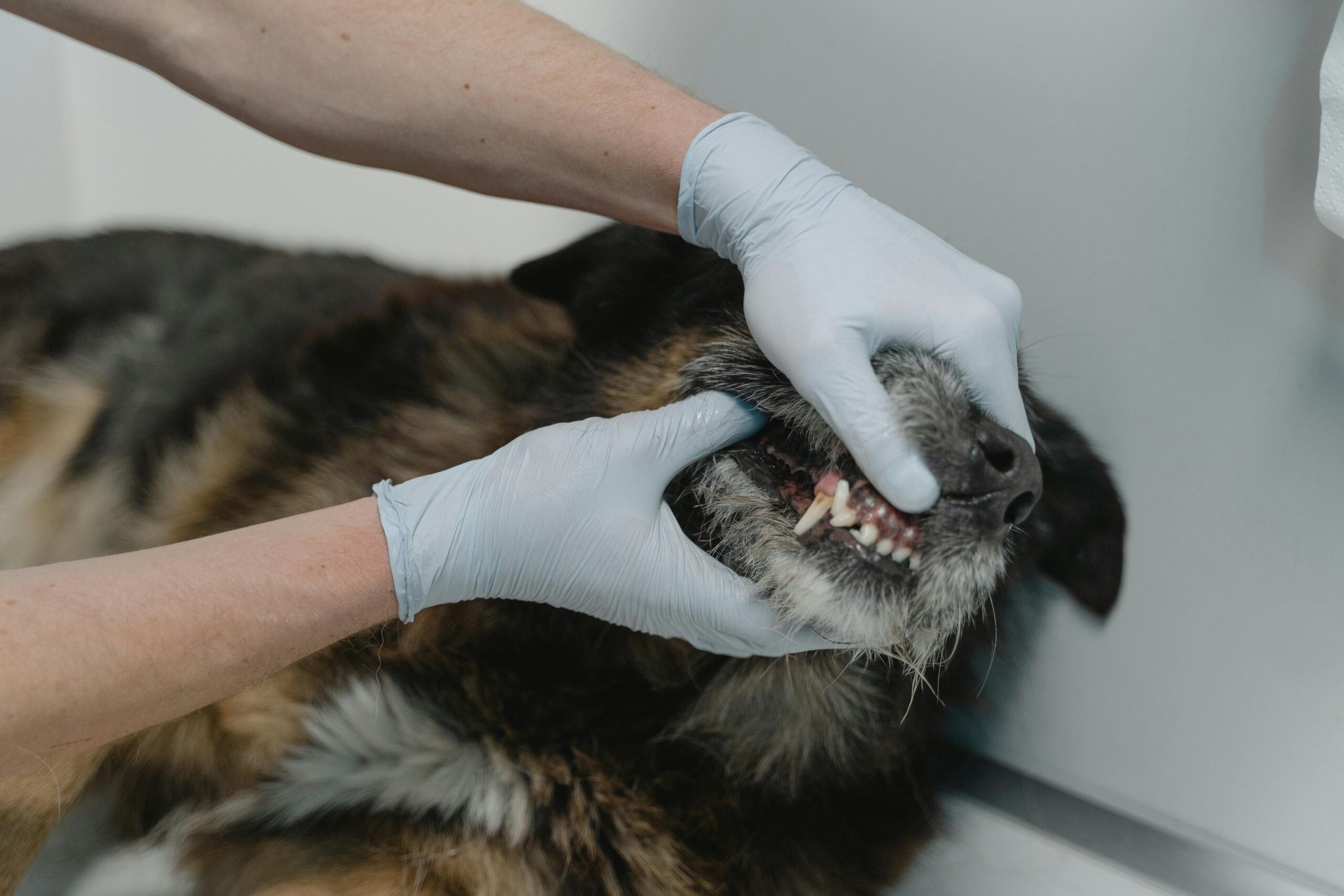Maintaining good dental health is essential for our furry companions just as it is for us. Yet, dental care for dogs is often overlooked. Neglecting your dog’s dental hygiene can lead to various oral health issues, including gum disease, tooth decay, and bad breath.
Fortunately, there are simple and effective ways to improve your dog’s dental health right at home. By implementing these strategies into your daily routine, you can ensure that your canine companion enjoys a happy, healthy smile for years to come.
1. Regular Brushing:
Regular brushing is crucial for maintaining your dog’s dental health. Using a soft-bristled toothbrush and pet-friendly toothpaste, gently brush your dog’s teeth at least 2-3 times a week. Start slowly to allow your dog to become accustomed to the process, and gradually increase the frequency as they become more comfortable.
Brushing helps remove plaque and food particles from your dog’s teeth, preventing the buildup of tartar and reducing the risk of gum disease and tooth decay. Additionally, it allows you to inspect your dog’s mouth for any signs of dental issues, such as swollen gums or broken teeth, so you can address them promptly.
2. Offer Dental Treats:
Dental treats are another way to support your dog’s oral health. These treats are formulated to help control plaque and tartar buildup and may contain ingredients like enzymes or abrasives that help keep your dog’s teeth clean and healthy.
Providing dental treats in addition to regular brushing and dental chews can help enhance your dog’s dental care routine and contribute to their overall oral hygiene. However, it’s essential to choose dental treats that are appropriate for your dog’s size, age, and dietary needs, and to avoid overfeeding to prevent weight gain.
3. Provide Dental Chews and Toys:
Chewing on dental chews and toys can be beneficial for your dog’s dental health. These products help remove plaque and tartar buildup from your dog’s teeth while providing mental stimulation and entertainment. Look for dental chews and toys specifically designed to promote dental health. Beef trachea for dogs is one dental chew to consider. It offers a natural and enjoyable way for your dog to satisfy their chewing instincts while promoting dental health.
The texture of beef trachea helps scrape away plaque and tartar from your dog’s teeth as they chew, reducing the risk of dental issues such as gum disease and tooth decay. Additionally, beef trachea is rich in natural collagen and nutrients, which can support joint health and contribute to your dog’s overall well-being.
4. Schedule Regular Dental Checkups:
Regular dental checkups with your veterinarian are essential for monitoring your dog’s dental health and addressing any issues early on. Your vet can perform a thorough examination of your dog’s teeth and gums, identify any signs of dental problems, and recommend appropriate treatment or preventive care measures.
Depending on your dog’s age, breed, and overall health, your vet may recommend dental cleanings or other procedures to keep your dog’s teeth and gums healthy. By scheduling regular dental checkups, you can ensure that any dental issues are detected and addressed promptly, helping to prevent more serious problems in the future.
5. Choose Dental-Friendly Diet:
Feeding your dog a balanced diet that supports dental health is crucial for maintaining their oral hygiene. Consider choosing dental-friendly kibble or wet food formulas that are designed to promote healthy teeth and gums.
These foods may contain ingredients like antioxidants, vitamins, and minerals that support dental health, as well as a texture that helps clean teeth as your dog eats. Avoid feeding your dog sugary or sticky treats, as these can contribute to tooth decay and gum disease. Instead, opt for nutritious treats that promote dental health and overall well-being.
6. Monitor Your Dog’s Oral Health:
Taking the time to regularly inspect your dog’s mouth for signs of dental issues is essential for maintaining their oral health. Look for symptoms such as bad breath, swollen gums, redness or bleeding, loose or broken teeth, or discolored teeth.
If you notice any abnormalities or changes in your dog’s oral health, consult your veterinarian promptly for further evaluation and treatment. Early detection and intervention can help prevent dental problems from worsening and ensure that your dog receives the care they need to maintain a healthy smile.
7. Consider Professional Dental Cleanings:
In addition to at-home care, professional dental cleanings performed by your veterinarian are an important part of your dog’s dental health regimen. These cleanings involve removing plaque and tartar buildup from your dog’s teeth using specialized tools and techniques, helping to prevent gum disease and other oral health problems.
Your vet may recommend professional cleanings based on your dog’s individual needs, such as their age, breed, and overall oral health status. By scheduling regular professional dental cleanings, you can ensure that your dog’s teeth and gums remain healthy and free from disease, promoting their overall well-being and quality of life.
Conclusion
Improving your dog’s dental health doesn’t have to be complicated. By following these simple and effective strategies, you can help keep your furry friend’s teeth and gums in top condition. Remember, a little effort goes a long way when it comes to caring for your canine companion’s smile. By prioritizing their dental health, you can ensure that they enjoy a lifetime of happy, healthy smiles.

